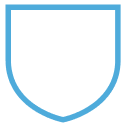Acts - Week 36
Sunday, January 8, 2023
Reminder: You might want to spend a few minutes reminding the group about the upcoming Deacon and Elder nominations. While more will be shared next week about the process, you might review I Timothy 1:1-13 to focus on the types of men we ought to consider for church leadership.
You might ask if the group has any questions about the process (especially if someone is new to UBC).
Discussion starter: Since we spent last Sunday looking at 2022, let’s begin this week with a look to the future:
Anyone make a New Year’s Resolution?
Anyone already broken it?
Has there ever been a New Year’s Resolution you’ve actually kept the entire year?
Acts review: In order to reorient us back into our study of Acts, Jason reminded us of at least three ways to situate the book of Acts.
-First, remember that Acts is a sequel to Luke’s first book, the Gospel of Luke.
-Second, while the Gospel ended with Jesus’ resurrection, Acts picks up at His ascension.
-Third, before Jesus returns to the Father, He commissions his followers:
“But you will receive power when the Holy Spirit has come upon you, and you will be my witnesses in Jerusalem and in all Judea and Samaria, and to the end of the earth.” (Acts 1:8)
-And, this commission serves as an outline for the entire book of Acts:
-Chapters 1-7 in Jerusalem
-Chapters 8-12 in the regions around Jerusalem (Judea and Samaria)
-Chapters 13-28 in the “ends of the earth” as missionary, Paul, takes the Gospel across the Mediterranean world during his three missionary journeys.
This week’s passage: Have a volunteer read Acts 16:1-5
List some of the observations made about Timothy in this passage. (tip: raised in a mixed home, young, Greek father, etc.)
What are some of the practical applications we can make from the life of Timothy? (Tip: more is caught than taught, power of older women in ministry, the genuine sadness when Fathers aren’t following Jesus)
Jason used the introduction of Timothy and his forthcoming relationship to Paul to mention three types of people in our lives as Christians:
Paul – those in front of you who have led you and helped you develop.
Barnabas – peers alongside you
Timothy – those behind your who you can take by the hand
3. Share some of the “Paul’s” in your life. Describe them. How did they help you? What strategies did they use to help disciple you along the way?
4. Share some of the Barnabas’ in your life. Describe them. How did you help them? What strategies did you use to help disciple them along the way?
5. Any Barnabas’ that stand out?
Review verse 3:
6. Did Timothy have to be circumcised in order to be a faithful follower of Jesus? (Hint: look back at 15:5-11 for help).
7. Why was this issue of Timothy’s lack of circumcision such a big deal, and why did Paul have him circumcised? (Hint: the Jews and who they allowed in the Temple).
8. So, what’s the application for us when it comes to giving up personal freedoms for the sake of sharing the Gospel?
Jason ended up with a challenge to us to pray for the heart of Jesus (and Paul) to have hearts for the lost around us.
9. Consider your spheres of influence (home, neighborhood, work, family) and start compiling a list of lost people you might pray for in 2023 (Jason’s challenge was to pick 2 or 3 to pray for specifically).
10. End your time together praying for the first names of those people as a group.
